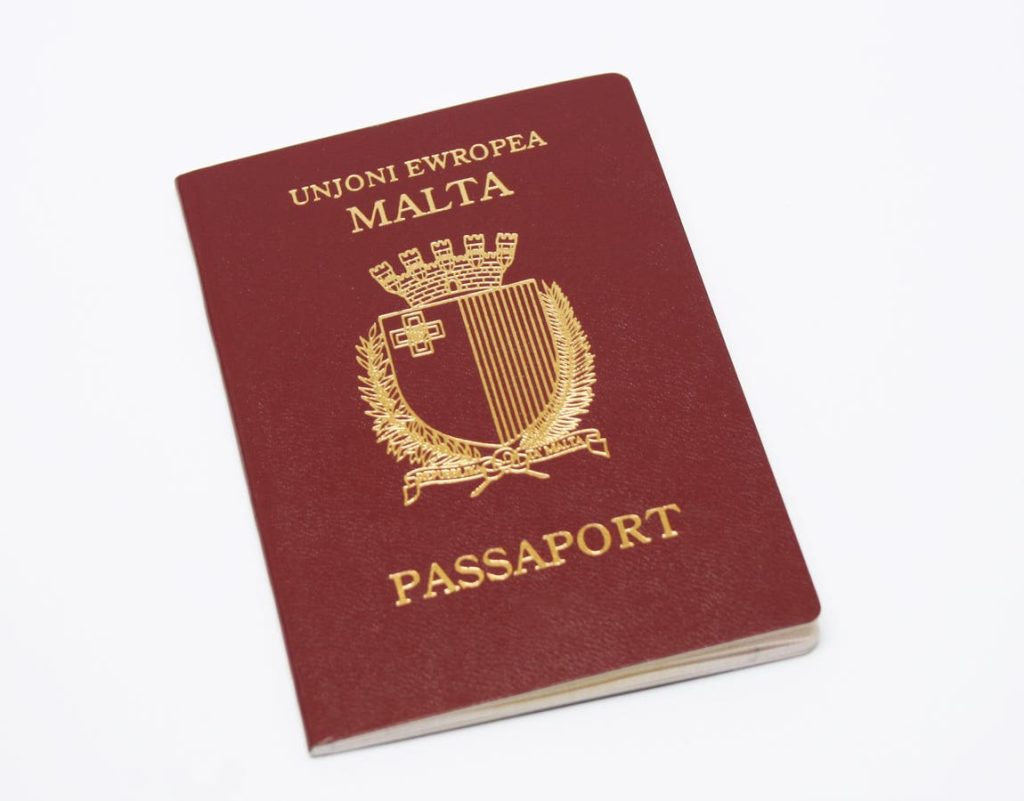In a highly anticipated landmark decision, the European Union highest court has ruled that Malta’s controversial ‘golden passports’ program for wealthy investors violates the EU’s rules on citizenship.
The controversial system that allows foreigners to buy EU citizenship by investing at least €600,000 had been severely criticized by the European Commission that, worried over related security issues, took legal action in 2022 against the small Mediterranean island nation over the scheme.
Through its ‘golden passport’ program, Malta enabled foreigners to acquire Maltese – and thereby EU – citizenship, raising hundreds of millions of euros for the country.
European Values Not For Sale
In its initial argument, the Commission complained that the golden passport scheme offered individuals the chance to gain Malta’s citizenship – also imparting the right to work anywhere across the EU even if they had no family ties or even a home there.
“The Commission considers that the granting of EU citizenship in return for pre-determined payments or investments, without any genuine link to the Member State concerned, is in breach of EU law.
Maltese Passport
getty
“Investor citizenship schemes undermine the essence of EU citizenship and have implications for the Union as a whole. Every person that holds the nationality of an EU Member State is at the same time an EU citizen. EU citizenship automatically gives the right to free movement, access to the EU internal market, and the right to vote and be elected in European and local elections.
The inherent risks of such schemes have once again been highlighted in the context of the Russian aggression against Ukraine. The Commission stressed that Member States still operating investor citizenship schemes need to terminate them immediately.”
The nation’s passport scheme has drawn scrutiny for allowing sanctioned individuals to circumvent travel bans.
The High Court Ruling On Golden Passports
On April 29, the EU Court of Justice based in Luxembourg agreed with the Commission, ruling that the scheme amounts to “the commercialisation of the granting of the status of national of a Member State and, by extension, Union citizenship” and is thereby unlawful as it violates “good faith and mutual trust” between EU member countries, and “is incompatible with the conception of that fundamental status that stems from the EU Treaties, as well as with the principle of sincere cooperation enshrined in Article 4(3)” of the Union treaty.
The court declared that by establishing and operating its golden passport scheme Malta failed to fulfil its obligations under the EU treaties and ordered Malta to pay the costs of the case.
In a first reaction following Tuesday’s ruling, the Maltese government clarified that past recipients of the scheme would not be affected by the latest decision and that it would comply with the court’s ruling and update its laws accordingly. “As always, the government of Malta respects the decisions of the courts,” the statement reads. “At this moment, the legal implications of this judgment are being studied in detail, so that the regulatory framework on citizenship can then be brought in line with the principles outlined in the judgment.”
Malta’s government statement clarifies “that decisions taken under both the current and the previous legislative framework remain valid,” and that “the Government of Malta takes pride in the wealth generated through this framework over recent years, which enabled the establishment of a national fund for investment and savings to address the needs of both present and future generations.”
Golden Passports And Security Concerns
In an article entitled “EU Court of Justice puts an end to harmful citizenship-by-investment schemes,” Transparency International celebrated the judgement, adding that “the Commission v. Malta will close one door to corrupt actors buying their way into the EU.”
Malta had already suspended the scheme for Russian and Belarusian citizens following the invasion of Ukraine, but recipients before the ban took effect included sanctioned Russian businesspeople, according to a Financial Times report that found “Maltese ‘golden’ passports were sold to Russians with Ukraine war links.”
Acquiring an EU passport or residence card may have allowed wealthy Russians to evade sanctions and open doors for laundering money.
“Malta’s was the last remaining golden passport scheme within the bloc, after Cyprus scrapped its procedure in 2020, and Bulgaria in 2022.,” Euronews reports. “Other countries offer “golden visas” a narrower system that gives residence permits to those willing to pay, although those also are currently under the EU microscope.
Portugal slimmed down its golden visa scheme in 2023, removing a real estate investment condition in a bid to cut property speculation. The Netherlands followed, terminating its golden visa scheme in January, 2024, and Spain is in the process of abolishing golden visas for those who invest in real estate. Meanwhile, Greece still offers it.
Golden Passports Permit Safe Haven For Corrupt People
For Transparency International’s CEO, Maíra Martini, “today’s judgement confirms that member states cannot commodify EU citizenship and operate reckless golden passport programs. Countless cases have shown how these schemes have granted safe haven to corrupt actors from around the world and other suspicious individuals in the EU. The ruling stops not only Malta from selling EU citizenship, but will also prevent other member states from doing the same.”
The news comes as a different position is discussed in the U.S. after President Donald Trump announced the launch of a special immigration visa, a ‘gold card’ for foreign individuals who invest five million dollars in the country.
Comparing the European decision with the US government’s efforts to attract wealthy foreigners investment, Bloomberg wrote that “the bloc’s top court rule could have transformed the EU into a haven for affluent foreigners at a time when President Donald Trump wants to entice them to the US.”
“The position of the Commission on investor citizen schemes — like Golden Passports and Golden Visas — has been very clear from the outset: European citizenship is not for sale,” said Commission spokesperson Markus Lammert.
MORE FROM FORBES

